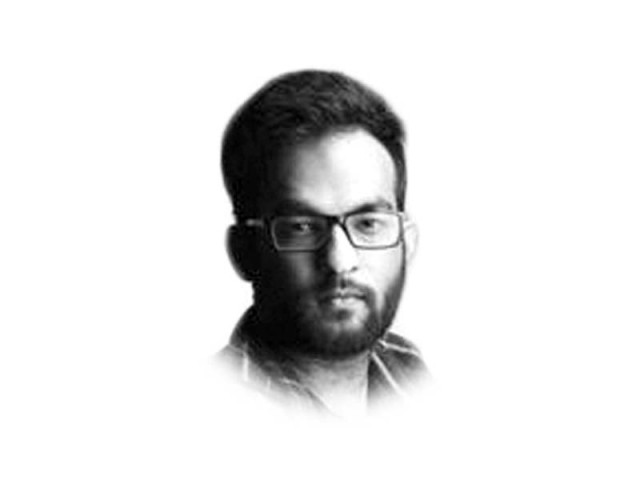Communal politics trumps development in India’s UP state
Uttar Pradesh in north India is the world’s fourth largest democracy

The writer is a digital journalist with the Hindustan Times based in New Delhi. He has strong interest in Politics and International Affairs
On 4th January, 2017, the Election Commission of India announced the long scheduled dates of the Uttar Pradesh (UP) elections, along with four other states in India.
The state of Uttar Pradesh in north India is the world’s fourth largest democracy and is home to more than 200 million people. The staggering election was announced in seven phases that went on for five weeks. Narendra Modi, who led the BJP juggernaut in the 2014 general elections, needed this win, as usually, they say, the route to Delhi is via UP. Since Modi has already conquered Delhi, he needed UP to further strengthen his position. The BJP did not announce any chief ministerial candidate for the state and started on their ‘self-proclaimed successful’ financial policies of demonetisation in India, banning Rs500 and Rs1,000 notes and limiting cash withdrawals as a measure to check black money.
However, the enthusiasm for demonetisation in itself subsided in few months but faith in Modi did not. Some voters pointed to his simple nature, some pointed to his tangible schemes, some said he would bring in development, but majority of them did not have clear answers.
Maybe it’s just the connect with Modi, the abiding faith, the image of a Hindutva leader, the people look upon as.
Slowly and steadily as the elections dates came closer, the polarisation began. The BJP announced the candidates for the 403 assembly seats, without naming a single Muslim candidate. By not fielding a single Muslim candidate, BJP made it clear who it was targeting for votes. In the history of UP, no national party has ever done this before.
Soon, the BJP raked up the Ayodhya issue. Ayodhya is a disputed issue between Muslims and Hindus. In 1992, Babri Masjid was demolished by right-wing Hindus as they believe, that it is the birth place of Lord Rama. The BJP pushed this agenda of building the temple, contrary to the Supreme Court order, which says both mosque and temple should co-exist in the place.
Furthermore, the PM stoked the flames by using the incendiary phrase remark ‘Qabristan and Shamshan’ (burial place for Muslims and Crematorium for Hindus). He further polarised the Hindu voters by saying that if electricity is provided during the Eidul Fitr festival at the end of Ramazan, it should be provided during the Hindu festival of Diwali as well.
However, it cannot be said that Muslims didn’t vote for the BJP, they did. The division of Muslim votes among several secular parties also helped the BJP. Even in the Muslim majority belt, BJP candidates won.
When Trump won the primaries, he made it clear who his target audience is, the white nationalists, when the BJP came to UP, they came with a clear intention to target the majority Hindus, and since not every Hindu represents the right wing, they polarised it with conflicting statements. That is why even the candidates with a criminal background, some with serious offences like murder and rape, won the elections, riding on the Modi wave, polarised by the PM himself.
One thing that happened in America was that the rise of Trump created a bonhomie between Jews and Muslims, while the brave American media took even a more stern stand against Trump. This is one thing that the people of UP can learn from America, but it seems that isn’t going to happen anytime soon. As soon as Modi won in UP, even the leading journalists started sending congratulatory messages on social media.
Published in The Express Tribune, March 22nd, 2017.
Like Opinion & Editorial on Facebook, follow @ETOpEd on Twitter to receive all updates on all our daily pieces.














COMMENTS
Comments are moderated and generally will be posted if they are on-topic and not abusive.
For more information, please see our Comments FAQ